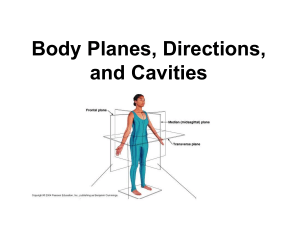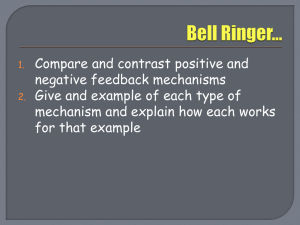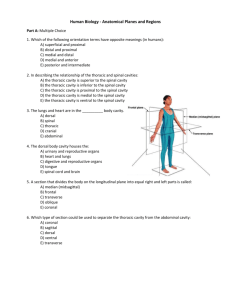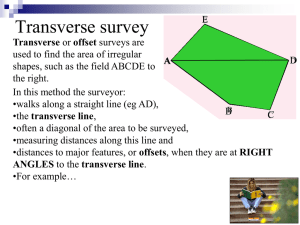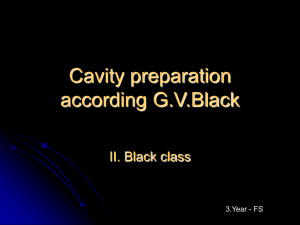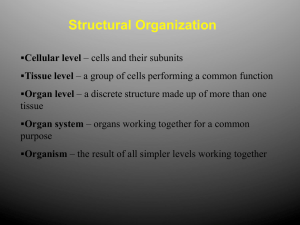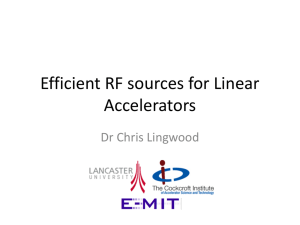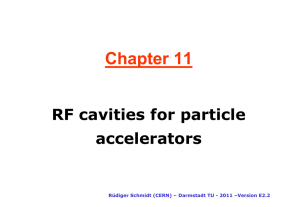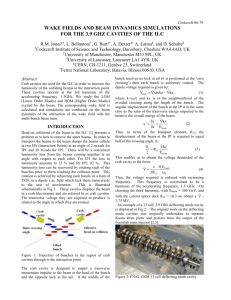STFC Corporate PowerPoint Template
advertisement
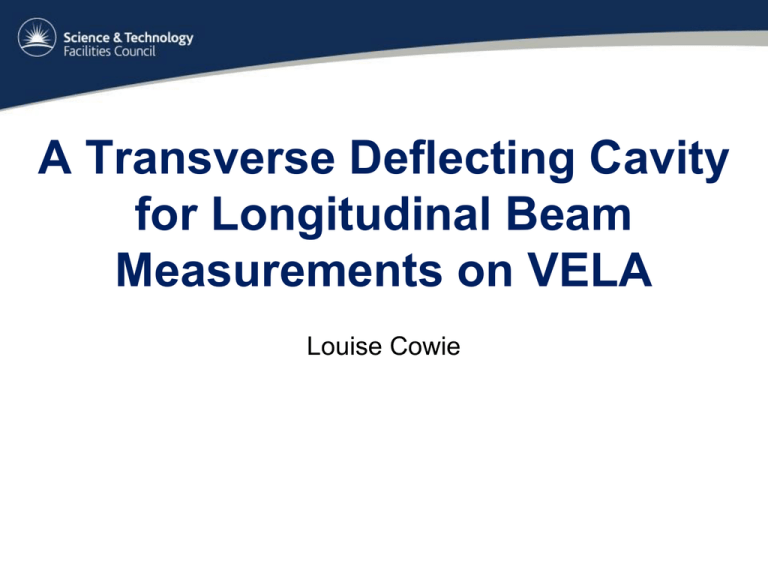
A Transverse Deflecting Cavity for Longitudinal Beam Measurements on VELA Louise Cowie Contents • • • • • VELA The transverse deflecting cavity and how it works Design choices Results Conclusion VELA TDC • S-band cavity operating at 2.9985 GHz and providing a 5 MV kick • The cavity gives each electron in the bunch a transverse kick that is proportional to its position • Converts longitudinal to transverse distribution Transverse force • The force on an electron is 𝑭 = 𝑒(𝑬 + 𝒗 × 𝑩) • To give an electron travelling in the z direction a transverse kick in the y direction requires either -An electric field in the y direction -A magnetic field in the x direction • Use what is known as a dipole-like mode: TM1np, TE1np TM110 Magnetic field force Magnetic field in the x direction Beam pipe E field Electric field Electric field in the y direction Number of cells • Chose a 9 cell 2.9985 GHz cavity as a compromise between HOM separation and shunt impedance. 1 𝑉˔ 2 𝑅˔ = 2 𝑃𝑐 • The cumulative transverse voltage should be around 5 MV • Cell length = one half wavelength = 50 mm • Required gradient = 5 MV / 450mm = 11.11 MV/m Cell Shape • Chose a well understood multi-cell pillbox shape • As used by Tsinghau University1 and SPARC2 End cells • The end cells were shortened to compensate for the effect of the beampipes. Dipole magnets will also be employed. Mode separation • Coupler in middle cell does not excite even modes • Coupling holes separate the SOM • Iris radii chosen to maximise mode separation in the pass band • Nearest mode is 6.5 MHz away = 5x cavity bandwidth Design Timeline Begin design September 2011 Design finished December 2011 3-cell prototype ordered March 2012 Begin re-optimisation September 2012 Field measurements July/August 2012 Design finished and 9-cell ordered December 2012 Simulation Results • Frequency of cavity is 2.9985 GHz • R/Q of operating mode is 292.48 Ohms • Q0 = 16046 QE=16140 Field flatness Conclusions • A 2.9985 GHz cavity giving a 5MV transverse kick was required for VELA • The cavity was designed to meet the requirements and the mechanical designs sent to RI for manufacture Acknowledgements Thanks to Philippe Goudket and Graeme Burt. References 1. Jiaru Shi et al. Bunch Length Measurement with RF Deflecting Cavity at Tsinhua Thomson-Scattering X-Ray Source. TH5PFP094 Proc. PAC09, Vancouver, Ca. 2. D. Alesini et al., “An RF Deflector Design for 6D Phase Space Characterization of the SPARC Beam”, EPAC’04, Lucerne, July 2004, p. 2616.

